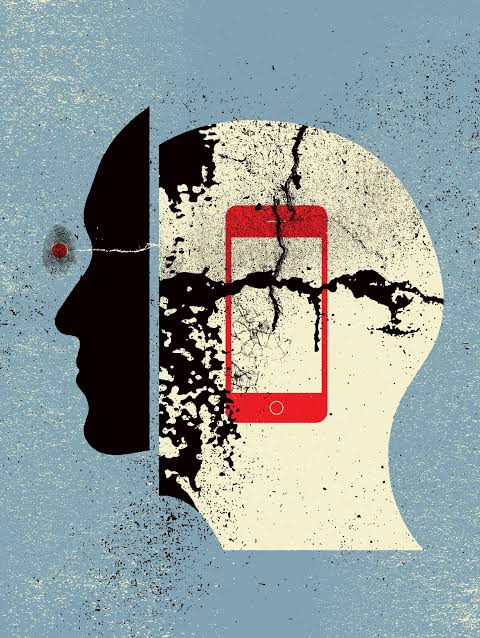– Mariya Umam
The world is grappling with an unprecedented mental health crisis. India is no exception. The pressures of modern life amplified by technology, shifting family dynamics, and social isolation are taking a toll on young minds. The United States offers a stark warning: smartphone overuse and social media addiction are driving alarming increases in depression, anxiety, and suicide among adolescents. India, with its vast youth population and growing digital footprint, stands on the brink of a similar crisis.
Amid these challenges, religion often overlooked in contemporary mental health discussions it presents a powerful, untapped resource. Rooted in community, purpose, and resilience, religious and spiritual practices could offer a lifeline in the fight against psychological stressors of modern life.
In a recent article in The Atlantic titled “End the Phone-Based Childhood Now,” social psychologist Jonathan Haidt traces the explosion of mental health issues in the U.S. to the rise of smartphones and social media around 2012. Between 2010 and 2019, suicide rates among young girls increased by 131%, and overall adolescent suicide rates rose by 48%. Depression and anxiety also spiked by 50%. These figures highlight the deep psychological impact of a hyper-connected yet increasingly isolating digital world.
The parallels for India are clear. A 2023 survey by Local Circles found that 61% of Indian children aged 9-17 spend three or more hours online daily, leading to behavioural and physical issues like aggression, impatience, memory problems, and stress. With over 800 million internet users and some of the world’s most affordable mobile data, India’s digital dependence is growing at an exponential rate. Coupled with the erosion of traditional family bonds evidenced by rising divorce rates in urban areas, these trends create a perfect storm for a mental health crisis.
Religion is found as a Missing Link. While researchers and policymakers often focus on technology regulations and mental health interventions, the role of religion is rarely considered. Yet religion and spirituality have been intrinsic to human societies for millennia, offering solace, community, and a framework for resilience in the face of adversity.
A 2019 study in the Journal of Political Economy found that religiosity significantly reduces depression in adolescents by boosting self-esteem and enhancing coping mechanisms. Similarly, during the COVID-19 pandemic, access to religious practices was shown to improve mental health outcomes, according to research by the University of Cambridge.
Religion offers unique advantages that go beyond clinical interventions or lifestyle changes. Religious teachings provide individuals with a larger perspective, helping them find purpose and meaning in their struggles and fostering resilience.
Religious institutions/ organisations create supportive Community networks where individuals feel a sense of belonging and a connection, reducing feelings of isolation.
Practices for reflection and peace like prayer, meditation, help regulate emotions, reduce stress, and promote mindfulness.
Religious practices emphasise moral and emotional guidance like compassion, gratitude, and forgiveness, values that can strengthen emotional well-being.
As we stand at the crossroads of tradition and modernity, we have an opportunity to lead the way in integrating spiritual wisdom with modern mental health strategies. Religious practices offer a time-tested framework for navigating life’s challenges, emphasising spiritual, emotional, and social harmony. Its teachings provide a foundation for resilience and mental well-being, making it a powerful resource in combating the psychological stressors of modern life. And to remain relevant, religious organisations must simplify theological concepts and adapt practices to address the unique challenges of the digital age. Creating safe community spaces can provide meaningful face to face interactions and helps to foster a sense of belonging. Also, religion should not replace evidence-based mental health treatments but complement them, offering holistic care that addresses the mind, body, and spirit.
The mental health crisis is a global challenge that demands innovative, multidimensional solutions. While technology and modern lifestyles bring undeniable benefits, they also come with significant psychological costs. Religion, with its capacity to foster community, provide purpose, and nurture resilience, offers a time-tested antidote to the isolation and stress of contemporary life. Islam can serve as a beacon of hope, ensuring that mental resilience and spiritual fulfilment go hand in hand.
As Prophet Muhammad ﷺ said: “There is no disease that Allah has created, except that He also has created its treatment.” (Bukhari). The solutions to modern mental health challenges may lie not only in clinical interventions but also in reconnecting with the timeless wisdom of faith.
The storm may be on the horizon, but with thoughtful intervention and a return to core values, we can weather it and even emerge stronger.




